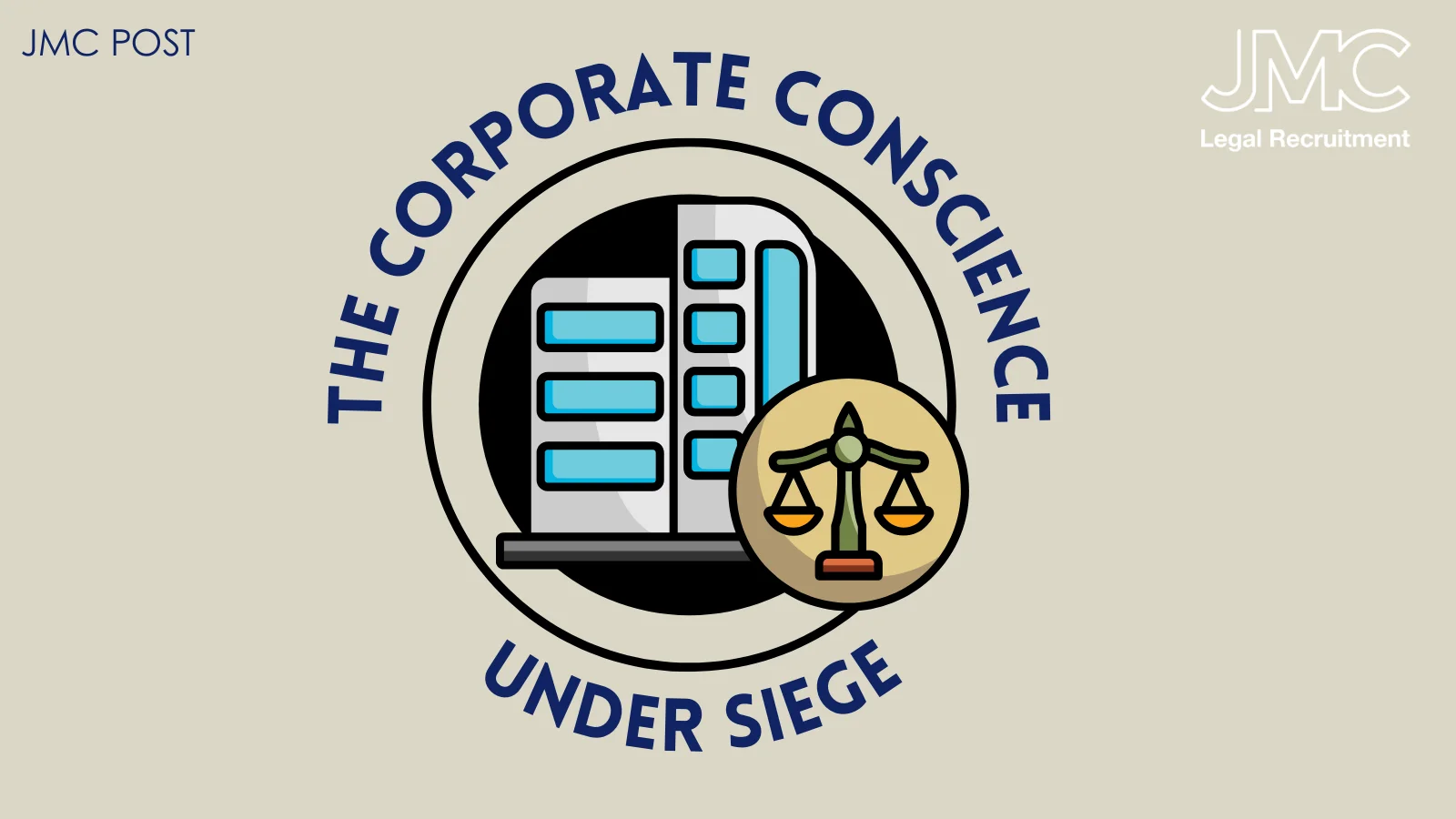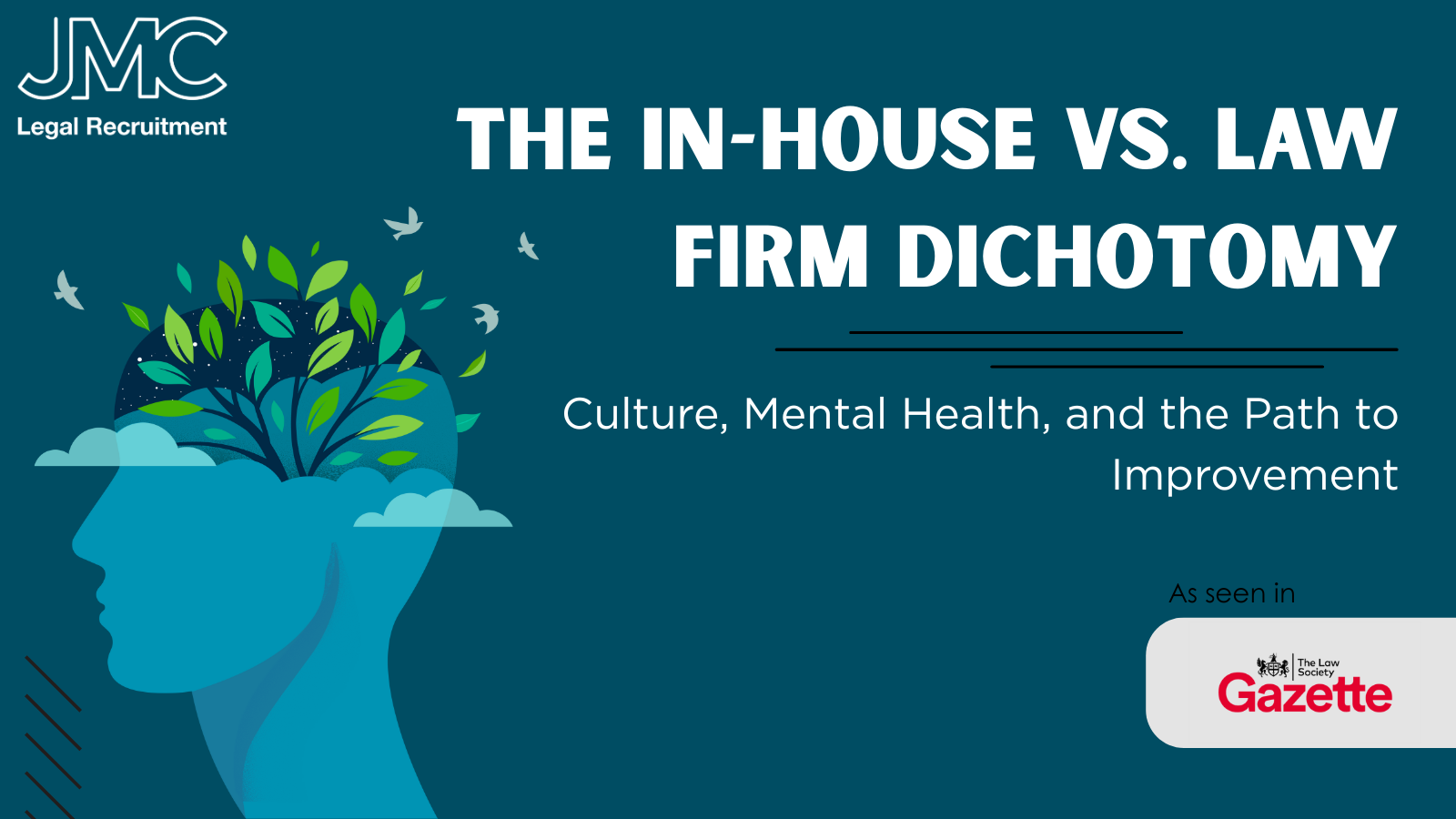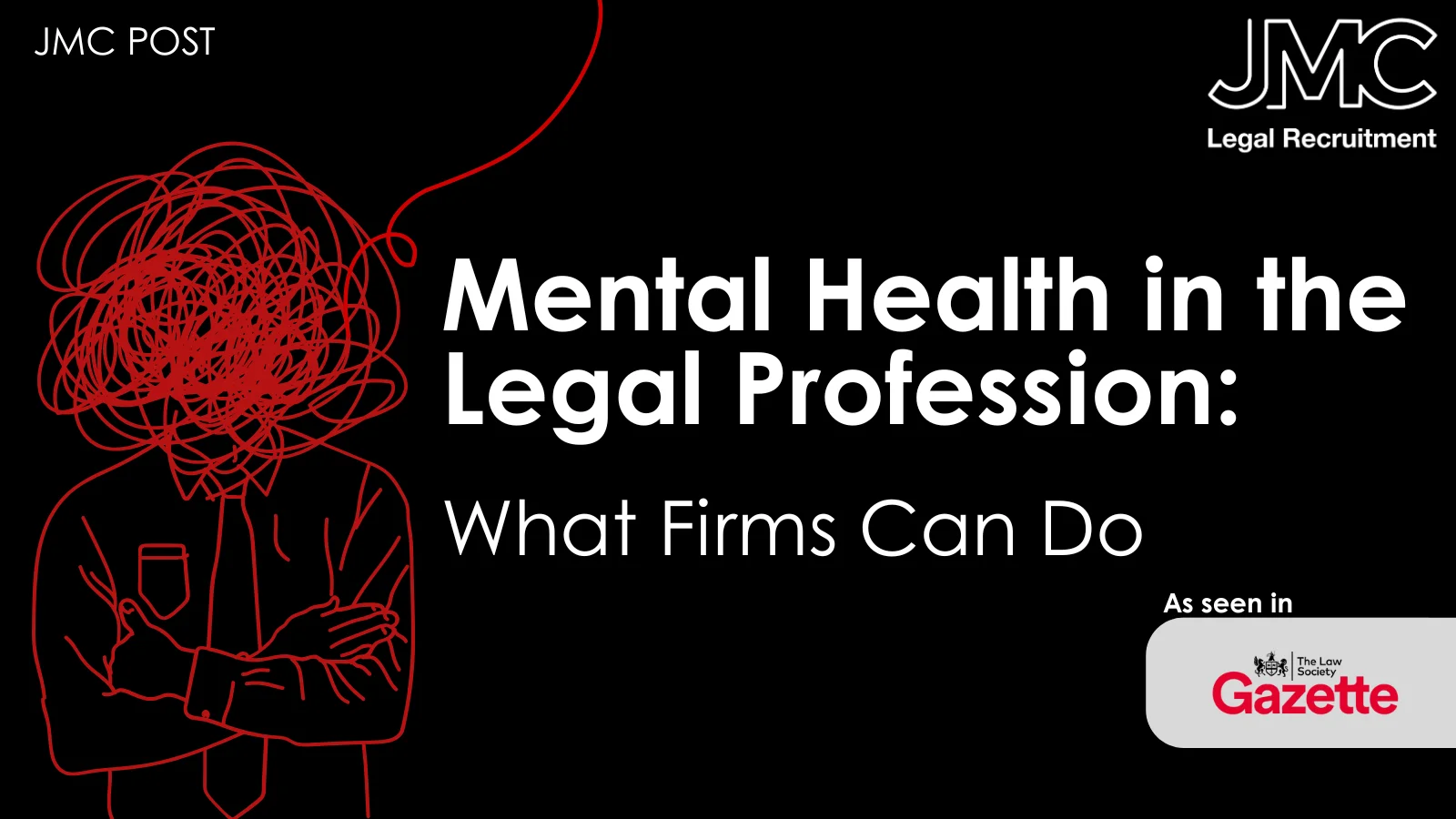
The In-House vs. Law Firm Dichotomy: Culture, Mental Health, and the Path to Improvement
14 Apr, 20255 minutes
Having solely focused on the in-house legal market over the last 4 years, I have had many in depth conversations with experienced lawyers who have truly ‘ran the gauntlet’ within US, Magic Circle and Silver Circle law firms. I was initially quite shocked to learn about the working hours, the sleepless nights and the expectation that burnout is just reality – yet I was equally as shocked to learn of how normalised this is across the entire sector.
As many of us who work within legal are aware, there have been countless cases of addiction, mental health struggles and suicide within our industry – and I do not expect that this will slow down unless community-driven reform and/or Government intervention takes place.
We recently conducted a poll which aimed to discover if the In-House vs. Law Firm mental health question really holds any weight, or if it is simply tongue n’ cheek. The results were rather staggering with an overwhelming 94% of respondents stating that their mental health has been better in-house compared to only 6% who found private practice more beneficial to their well-being (186 participants).
This article aims to explore the key cultural differences between these two career paths and offers suggestions on how law firms can improve their working environments to better support their employees.
Cultural Differences
Work-Life Balance
Law firms, especially US, Magic & Silver circle firms, are characterised by billable hour targets and an "always-on" expectation from clients. This culture frequently results in long working hours, unpredictability, and burnout.
In contrast, in-house roles generally provide a more structured schedule, with fewer after-hours demands and a greater emphasis on work-life balance. Without the pressure of billable hours, legal professionals can focus on problem-solving and providing strategic/business focused advice rather than logging time.
Pressure and Expectations
Private practice lawyers often juggle multiple clients with varying demands, which can lead to immense stress. The pressure to meet billable targets, generate new business, and maintain firm profitability.
In-house lawyers, while still facing deadlines and high expectations, work for a single organisation. This allows for deeper familiarity with business needs and priorities, leading to a less chaotic workload.
Job Security and Career Progression
Law firms have a structured (yet highly competitive) career path, with the ultimate goal of making partner. This can create a cutthroat environment where only a select few advance, adding to stress and job insecurity.
In-house legal teams offer a different career trajectory, often with clearer progression based on expertise and company needs rather than intense competition.
Firm Culture and Support System
Many law firms have traditional, hierarchical cultures where overworking is normalised and sometimes even celebrated. This "work hard, play hard" mentality can take a serious toll on mental health.
In contrast, in-house teams often function within a larger HR-supported environment that prioritises employee well-being, offering benefits like mental health programs, flexible working arrangements, and wellness initiatives.
How Law Firms Can Improve Mental Health and Culture
Given the significant disparity in mental health outcomes between in-house teams and law firms, it is clear that law firms must evolve to create a more sustainable and supportive work environment. Below are several recommendations for law firms to consider implementing:
Address the Billable Hour Model
- Law firms should reconsider rigid billable hour structures that incentivise overwork. Alternative performance metrics, such as client satisfaction and quality of work, could be incorporated to reduce the relentless pressure to maximise hours.
Promote Work-Life Balance
- Introducing policies that encourage flexible working arrangements, remote work, and reasonable expectations around after-hours availability can significantly improve well-being.
- Firms should actively discourage a culture of excessive overwork and recognise the long-term benefits of a healthier workforce.
Enhance Mental Health Support
- Establish confidential mental health programs, employee assistance initiatives, and access to therapy or wellness resources.
- Normalise open conversations around mental health and well-being by implementing firm-wide awareness campaigns and training for leadership.
Re-evaluate Partnership Track and Career Progression
- Law firms should offer alternative career progression paths that reward legal excellence and business contribution rather than just hours worked.
- Implement mentorship and sponsorship programs to provide career guidance in a more supportive and structured manner.
Improve Firm Culture and Leadership Training
- Partners and senior lawyers should be trained in people management skills to foster a more empathetic and supportive workplace.
- Firms should encourage a feedback-driven culture where employees feel heard and valued.
Conclusion
At the end of the day, lawyers are not billable-hour-producing robots (even if some firms seem to wish they were). These are people with families, friends, hobbies, and a basic human need for sleep. While private practice offers prestige, high salaries, and intellectual challenge, it often comes at the expense of well-being. The overwhelming preference for in-house roles in our survey should serve as a wake-up call for law firms: if you don’t take care of your lawyers, they’ll take their talents elsewhere (and probably enjoy their weekends for the first time in years).
Of course, changing an industry so steeped in tradition won’t happen overnight. But small shifts such as rethinking the billable hour obsession, prioritising mental health, and fostering a culture that values people as much as profits, can make a world of difference. Happier lawyers are more productive, more engaged, and less likely to fantasise about quitting to open a beachside coffee shop. Law firms that recognise this will not only retain top talent but also build workplaces where success doesn’t have to come at the cost of sanity. And isn’t that a win for everyone?
If you are a legal professional struggling with your mental health, it is absolutely nothing to be ashamed of. Please see below some useful links worth visiting:
https://www.lawcare.org.uk/ https://www.mhla.co.uk/
As seen in the Law Gazette.


